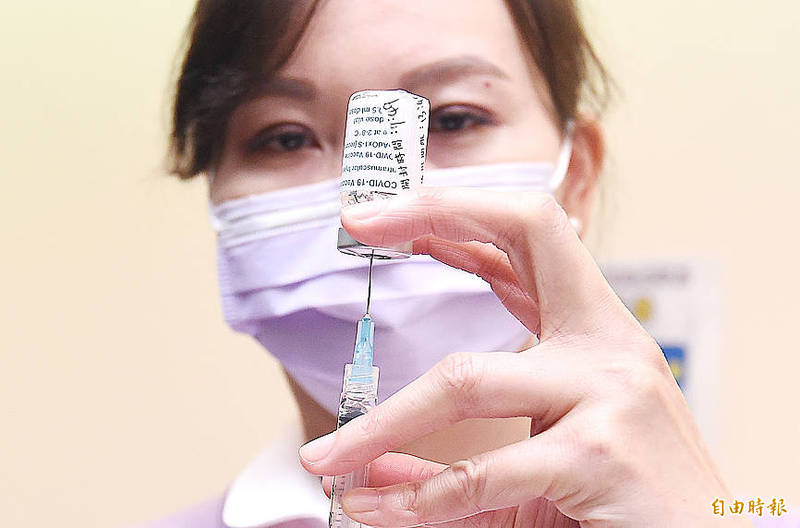《TAIPEI TIMES》 Olympic athletes start vaccine shots: CECC

A nurse at National Taiwan University Hospital prepares COVID-19 vaccine shots on Monday. Photo: Liao Chen-huei, Taipei Times
By Lee I-chia / Staff reporter
Athletes who have qualified to compete in the Tokyo Olympics yesterday started receiving their first dose of the AstraZeneca COVID-19 vaccine, the Central Epidemic Command Center (CECC) said.
The nation started its vaccination program on Monday, with frontline healthcare workers at designated hospitals receiving the first jabs.
Tokyo Olympics qualifiers have also been given first priority for vaccination, Centers for Disease Control (CDC) Deputy Director-General and CECC spokesman Chuang Jen-hsiang (莊人祥) said.
The Tokyo Olympics are scheduled to open on July 23.
The CECC hopes that athletes and national team staff members can complete the two doses before heading to the competition, he said.
As of noon yesterday, a total of 1,578 people had received the vaccine, Chuang said, adding that the number was relatively low on the first day because it is a new vaccine in Taiwan, and hospitals need some time to test their standard procedures.
Healthcare workers took turns getting the jab to avoid a staff shortage in case some were to experience side effects, such as a fever, after being inoculated, he said.
One non-severe adverse reaction was reported — a healthcare worker in northern Taiwan who developed a fever and felt tired after being vaccinated, he said.
The legal definition of a severe adverse event includes situations such as death, life-threatening conditions, permanent disability, congenital anomaly, hospitalization or prolonged hospitalization, and other conditions that might result in permanent injuries, CDC physician Lin Yung-ching (林詠青) said.
A non-severe adverse event is defined as having the common side effects of vaccination, such as a fever, swelling or pain at the injection site, tiredness and a headache, he said.
People should not worry about developing a fever after vaccination, as it is likely the result of the immune system being activated, he said.
The CECC reported one imported case of COVID-19 yesterday — a Dutch man in his 20s.
The man arrived from the Netherlands on Feb. 8, and tested negative in a paid test on Feb. 23, but another test taken on Sunday came back positive, Chuang said.
The man’s test result implied a low viral load, with the latest test on Monday coming back negative, Chuang said.
His antibody test came back negative for immunoglobulin M antibodies and positive for immunoglobulin G antibodies — implying a past infection, Chuang said.
The man might have contracted the disease abroad some time ago and has a lower risk of infecting others, the CECC said.
In other news, the CDC reported the first imported case of Chikungunya fever this year — an Indonesian man in his 20s who on Tuesday last week arrived in Taiwan for work.
The man was tested for dengue fever at the airport as he had a fever when he arrived, and was later tested for COVID-19 and Chikungunya fever at a hospital, CDC Epidemic Intelligence Center Director Guo Hung-wei (郭宏偉) said.
The man has been hospitalized for treatment, Guo said, adding that two people who arrived in Taiwan with him have not developed any symptoms.
Additional reporting by Wu Po-hsuan
新聞來源:TAIPEI TIMES
















